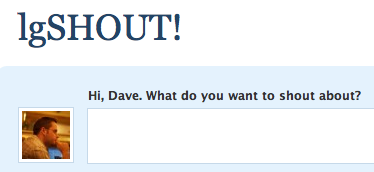One of the problems of being a new media fanboy like me is that we sometimes get a bit too excited about this stuff, and fail to see some of the downsides of web 2.0. That’s why I have a copy of Andrew Keen‘s Cult of the Amateur on my bookshelf – I like to pick it up now and again to remind myself of the other way of thinking about using the web to increase participation and engagement. I might not agree with Keen, but it’s important to take a regular dose of what he has to say, I think.
In all of the pro-web 2.0 literature (Here Comes Everybody, We-Think etc etc) Wikipedia is often cited as an example of mass-collaboration in action, which of course it is. But I often wonder about how relevant Wikipedia is as the poster-child of genuine distributed organisation. This comment from Andy Roberts puts it pretty succinctly:
It was set up and continues to be run by a multi-millionaire advocate of Ayn Rand’s Objectivism philosophy.
Now, don’t get me wrong. I think Wikipedia is a great thing, and it’s usually one of the first resources I turn to when I need to get the skinny on something. But I do have concerns about it being held up as being a model to follow for other online communities.
Part of this is because of the complicated relationship between Wikipedia and Wikia, the for-profit site which provides wiki spaces for groups to produce content together. Wikia is developing a search engine, using Wiki technology with various ties into Wikipedia. There has been much comment on the fact that Wikia seems to be using the freely provided work of volunteers to power a project intended to make money for Wikia.
A great source of information, opinion and gossip about Wikipedia, Wikia and the search project is Seth Finkelstein’s Infothought blog. You don’t have to agree with everything he says, but his dissident viewpoint is often refreshing. I recommend you subscribe.


